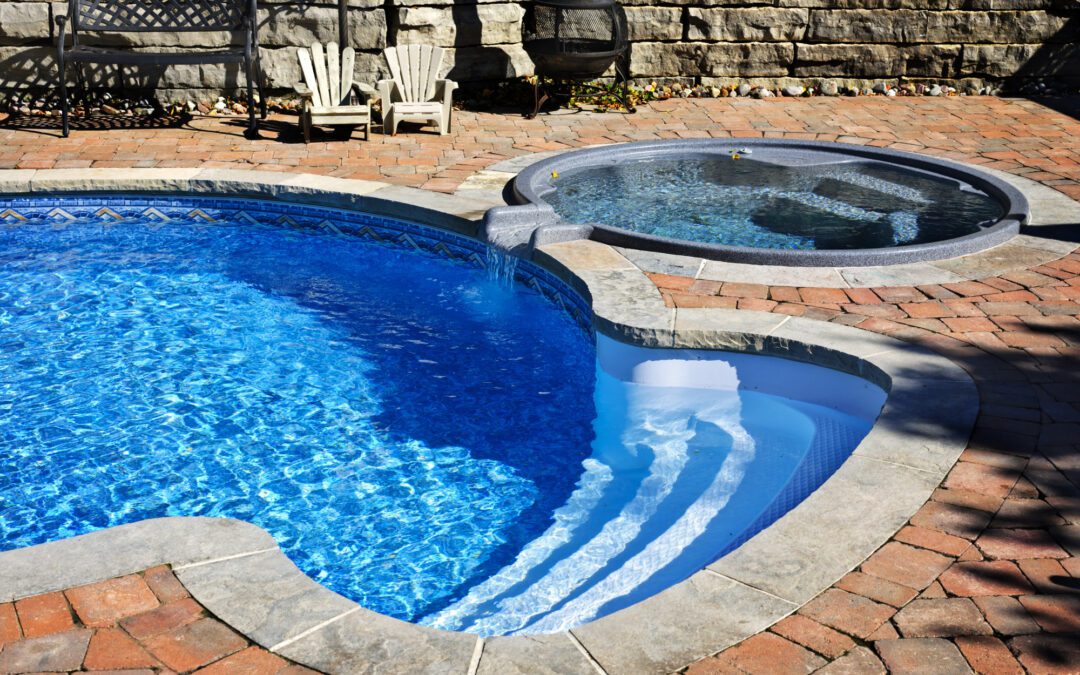Pools are a great home addition that provides both property value and endless recreation fun. They’re also one of the best ways to survive the sweltering Texas sun.
Now is the time to build a pool, according to experts. The pool industry surged during COVID, startling even veteran pool suppliers. Materials and services are going up in costs, and many local contractors are booked solid on pool installations for months out.
Are you ready to build your own luxurious swimming pool area? Before you get started, you may need to apply for a pool permit. Here’s everything you need to know about applying for a permit in Texas.
Do I Need a Permit?
For any below-ground permanent pool, the answer is an overwhelming yes. Permits are required for any significant residential home additions, remodeling, and/or construction work.
Pools are a large project. They’re also a potential safety and nuisance issue for your neighbors and neighborhood. The city wants to make sure pools are built safely and correctly to avoid long-term issues and resident injuries.
Pool Permit Required
Every local area has its own permit requirements. There’s no “one size fits all” answer to pool permit requirements.
If you’re going to build a pool that requires a fair amount of construction work, it’s a safe bet you’ll need to apply for a permit. This work includes:
- Digging out yard portions
- Concrete pouring
- New plumbing installation
- Electrical work
- Safety fence installation
In some cities, even above-ground pools will require a permit. The city of Katy requires a permit for any new installation of swimming pools and hot tubs, even if they’re not installed in the ground.
Pool Permit Not Required
Some localities may not require a permit for certain pool types or sizes. For example, the city of Austin allows a building permit exemption for a prefabricated pool less than 24 inches (2 feet) deep.
The pool must still adhere to any other applicable city codes, however, such as safety and building codes. It’s always best to get confirmation from your municipality before beginning your project.
The consequences can be steep if you needed a permit and didn’t get one. You can also face legal issues if you unknowingly violated local building codes.
Texas Building Laws
Building laws are complicated in any state. Texas building laws are no exception. There’s no one comprehensive set of laws for every area.
The state sets certain minimum requirements. Local and county laws then add their own requirements, which may also overlap.
For example, a residential home in Dallas will fall under any applicable Texas, Dallas county, and Dallas city laws and ordinances. Some cities and counties may not add anything new to the minimum requirements, while others may add very strict requirements of their own.
Many neighborhoods are also subject to Homeowners Association (HOA) rules. HOAs can limit or even prohibit any pool and hot tub installations.
If you have an HOA, make sure you go through their official approval process before you build a pool. You could end up with a very costly mistake otherwise.
State Laws
Texas building laws adopted the International Swimming Pool and Spa Code for residential buildings. The specifications for permanent inground residential swimming pools include:
- Material suitability
- Construction tolerances
- Diving water envelopes
- Wall requirements
- Maximum ledge width
- Pool floor requirements
- Diving equipment requirements
- Slide installation
- Entry and exit dimensions
- Pool stairs design
- Circulation systems
- Safety features
Pool designs must meet these requirements as a minimum. Local and city codes will add their own specifications, along with their codes for safety, electrical and plumbing work, and any other applicable building issues.
Local and County Codes
Most of your permit process requirements will go through the municipality your residential home falls under. The city/county authorities will make sure you adhere to both their requirements and the state minimums.
The city and county will outline their own requirements for your pool to meet their permit requirements. For example, the city of Houston requires:
- 2 complete sets of plans
- Plot survey
- Pool construction company information
- Pool owner information
- Pool color
- Filter type
- Backwash and skimmers
- Chlorine and sanitation system
- Pool drain compliance
- Pump and flow rates
- Backflow prevention
- Safety fence and gate designs
- Exact pool measurements and total gallons
You cannot obtain a pool permit without this information. If your submitted information violates their requirements, they can also deny your permit. Fortunately, your pool contractor can help you navigate this process.
HOAs
HOAs help to maintain neighborhood safety and property value. They can add existing pool requirements to make sure home values don’t decrease from a faulty design, such as having a pool take up too much yard space.
They may also add to existing safety requirements, like fencing and alarm systems. Texas already has strict requirements for pool safety to keep children from accidentally drowning in unsecured and unmonitored pools.
Pool Home Addition
A pool is substantial home addition. Along with construction design, it may require plumbing and electrical permits or an inspection by a certified contractor. If your pool has heating or air conditioning systems, you’ll also need a licensed HVAC specialist.
How to Apply for a Permit
Many municipalities allow you to apply directly on their city website. Or they provide a checklist to go over before submitting your paperwork to the applicable government office.
Cities may list other pertinent permit information, including:
- Inspection requirements
- Valid periods
- Renewal times
- Permit fees
- Application fees
- Plumbing/Electrical fees
- Processing times
- Contractor requirements
Your pool contractor can also help you with the application process, and in some cases even apply for you. The best pool builders already know the applicable requirements and how to keep your pool design from violating state laws, local codes, and HOA rules.
Dive Into Summer Fun with Your Own Private Pool
A swimming pool enhances your home and your home’s enjoyment. You have many factors to carefully consider in your pool design, however, so you can successfully apply for a pool permit.
Sahara Construction & Custom Pools has all the expertise you need to design your dream pool. Our experienced pool builders can transform your yard into an outdoor living space that enhances your existing home architecture. Contact us to get started!




